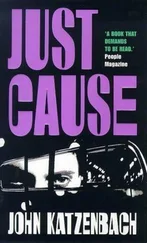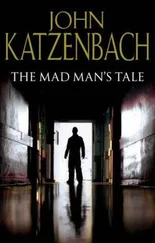He rose from his seat and went into the small bathroom. He inspected his appearance in the mirror above the sink. The black dye that had marred his light hair was fading quickly, and Ricky was beginning to regain his normal appearance. He thought this slightly ironic because he knew that even if he once again looked as the man he once was, he would never actually be that person.
For two weeks, he had barely left the confines of the motel room. At first he’d been in a sort of self-induced shock, like a junkie undergoing a forced withdrawal, shivering, sweating, twisting in pain. Then, as this initial phase dissipated, it had been replaced by an overwhelming outrage, a blinding, white-hot fury that had caused Ricky to pace angrily around the tiny confines of the room, teeth gritted, his body almost contorted by rage. More than once he’d punched the walls in frustration. Once he’d picked up a glass in the bathroom and crushed it into shards in his hand, slicing himself in the process. He’d bent over the toilet, watching blood drip into the water in the bowl, half wishing that every drop within him would simply flow out. But the pain that gathered in the ravaged palm and fingers reminded him that he remained alive, and eventually led him into another stage, where all the fear, then all the rage finally subsided, like the winds settling down after a thunderstorm. This new stage seemed to Ricky to be cool, like the touch of polished metal on a winter morning.
In this stage, he began to plan.
His motel room was a shabby, decrepit place that catered to long-haul truckers, traveling salesmen, and the local teenagers needing a few private hours away from prying adult eyes. It was located on the outskirts of Durham, New Hampshire, a place that Ricky had selected at random because it was a college town, housing a fractious population thanks to the state university. He had thought the academic atmosphere ensured him access to the out-of-town newspapers he would need, and provide a transitory world that would help to hide him. This guess on his part, as best as he could tell, had so far proven true.
At the end of his second week of death, he’d begun to make sorties out into the world. On the first few occasions, he’d limited himself to the distance his feet would carry him. He didn’t speak with anyone, avoided eye contact, stuck to abandoned streets and quiet neighborhoods, almost as if he half expected to be recognized, or worse, to hear the mocking tones of Virgil or Merlin float over his shoulder from behind his back. But his anonymity remained intact, and confidence grew within him. He’d rapidly expanded his horizon, finding a bus line and riding it throughout the small city, getting off at random locations, exploring the world he’d entered.
On one of these trips, he’d discovered a secondhand clothing store, which had provided him with an oddly well-fitted, cheap, and utilitarian blue blazer and some worn slacks and button-down shirts. He’d found a used leather satchel at a nearby consignment shop. He put away his eyeglasses in favor of contact lenses, purchased at a chain eyewear outlet. These few items, worn with a tie, gave him the appearance of someone on the edge of academia, respectable, but not important. He thought he blended in nicely, and he welcomed his invisibility.
On the kitchenette table to his side in the small room were copies of the Cape Cod Times and the New York Times for the days immediately following his death. The paper on the Cape had stripped the story across the bottom of their front page, with the headline: prominent physician an apparent suicide; landmark farmhouse destroyed in blaze. The reporter had managed to acquire most of the details that Ricky had provided, from the gasoline purchased that morning in newly acquired containers spread throughout the home, to the suicide note and the contributions to charities. He’d also managed to discover that there had been recent “allegations of impropriety” against Ricky, although the reporter neglected to convey the substance of the concoction invented by Rumplestiltskin and carried out so dramatically by Virgil. The article also mentioned his wife’s death three years earlier and suggested that Ricky had recently undergone “financial reversals” that also might have contributed to his entering a suicidal frame of mind. It was, Ricky thought, an excellent piece of writing, well researched and filled with persuasive details, just as he’d hoped. The New York Times ’s obituary, which appeared a day later, had been discouragingly brief, with only a suggestion or two for the reasons behind his death. He had stared at it with a sense of irritation: a little angry and put out that the entirety of his life’s accomplishments seemed to be so successfully wrapped up in four paragraphs of clipped and opaque journalese. He thought that he had given more to the world, but then understood that perhaps he hadn’t, which made him pause for a moment or two. The obituary also pointed out that no memorial service was planned, which, Ricky realized, was a much more important consideration. He suspected that the lack of a service honoring his life reflected Rumplestiltskin and Virgil’s work with the sexual misconduct allegation. None of his colleagues in Manhattan wanted to taint themselves with attendance at some event that memorialized Ricky’s work and persona when so much of that had been abruptly called into question. He guessed that there were a great number of fellow analysts in the city who saw the news of his death in the paper and thought that it was exquisite proof of the truth to Rumplestiltskin’s creation and at the same time was a fortunate thing, for the profession was spared a moment of ugliness when the allegations had surfaced in the New York Times , as they inevitably would have. This thought created in Ricky a modest fury with the membership of his own profession, and for a moment or two he insisted to himself that he was well to be done with it.
He wondered whether up to the first day of his vacation he had been equally as blind.
Both newspaper stories stated that his death was apparently by drowning, and that Coast Guard units were searching Cape waters for Ricky’s body. The Cape Cod Times , though, to Ricky’s relief, quoted the local commander saying that body recovery was extremely unlikely, given the strong tides in the area of Hawthorne Beach.
When he reflected upon it, Ricky thought it was as good a death as he could come up with, on such short notice.
He hoped that all the clues of his own suicide had been collected, from the prescription for the overdose he’d appeared to have taken before walking into the waves, to his unforgettable and uncharacteristic rudeness to the teenager in the marine supply store. Enough, he told himself, to satisfy the local police, even without a body to autopsy. Enough, too, he hoped, to convince Rumplestiltskin that his plan for Ricky had been successful.
The oddity of reading about one’s own suicide created a turmoil within him that he was having trouble sorting through. The toil of the stress of his last fifteen days of life, from the moment Rumplestiltskin entered his life to the moment he’d walked down to the edge of the water, carefully leaving footprints in the newly scoured sand, had put Ricky through something that he thought no psychiatric text ever contemplated.
Fear, elation, confusion, relief-all sorts of contradictory emotions-had flooded him, almost from the first step, when, water licking at his toes, he’d thrown the handful of pills into the ocean, then turned and walked through the wash a hundred yards, distant enough so that the new set of footprints when he emerged from the cold water around his ankles would not be noticed by the police or anyone else inspecting the scene of his disappearance.
Читать дальше












